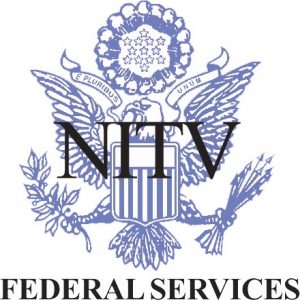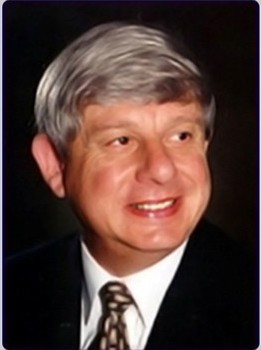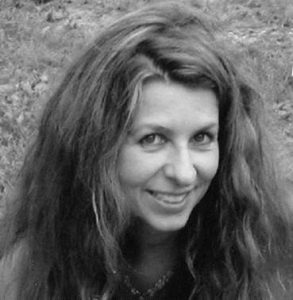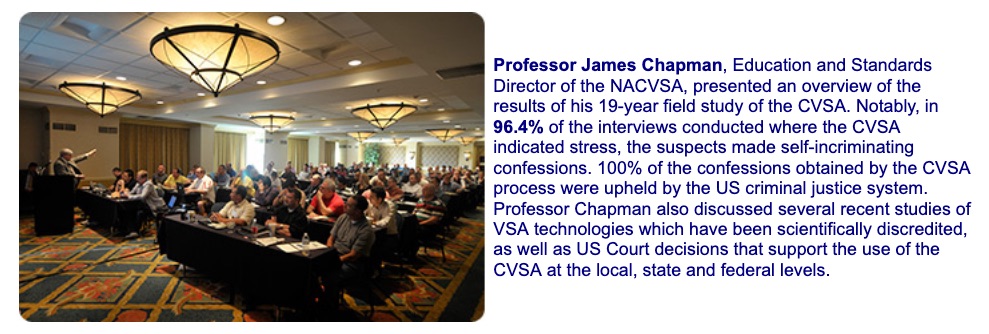
The so-named National Institute for Truth Verification (NITV), which markets a putative lie detector called the Computer Voice Stress Analyzer (CVSA), and its associated group, the National Association of Computer Voice Stress Analysts (NACVSA), ((The close nexus between the NITV and the NACVSA is reflected in the fact that a single entity, Voice Biometrics, LLC, holds the trademarks for “NITV,” “National Institute for Truth Verification,” “CVSA,” “NACVSA,” and “National Association of Computer Voice Stress Analysts.” In addition, at the time of writing, the websites for both the NITV and the NACVSA share a common IP address: 35.209.16.223.)) have in recent years claimed that a 2012 independent peer-reviewed study shows that CVSA has an accuracy rate on the order of 97% or higher. This despite the fact that NITV has admitted in court that “the CVSA is not capable of lie detection.”
An investigation by AntiPolygraph.org reveals that:
- The study cited by NITV/NACVSA has dubious claim to being peer-reviewed;
- The study did not involve NITV’s CVSA, but rather a different voice stress analyzer called the PSE-101 that was marketed by Dektor Counterintelligence and Security, Inc., a company that has been defunct for some three decades;
- The study is not “independent” in that its primary author had an undisclosed close and continuing relationship with NITV/NACVSA.
The citation for the study touted by NITV and NACVSA is:
Chapman, James L. and Marigo Stathis. “Field Evaluation of Effectiveness of VSA (Voice Stress Analysis) Technology in a US Criminal Justice Setting,” Criminalistics and Court Expertise, 2012 Annual Edition, Number 57.
However, a search of research libraries returns no publication titled Criminalistics and Court Expertise. As James R. Wygant noted in a 2014 commentary in the American Polygraph Association’s APA Magazine, “no trace of a publication by that name can be found on the Internet, although copies of the article itself are available.”
It turns out that the article appeared in a yearbook of the Ukrainian Ministry of Justice whose Russian title is Криминалистика и судебная экспертиза (Kriminalistika i sudebnaya ekspertiza). This periodical published Chapman and Stathis’ article in Russian under the title, “Оценка эффективности технологии VSA (Voice Stress Analysis ) на основе практики уголовного судопроизводства в США” (“Otsenka effektivnosti tekhnologii VSA (Voice Stress Analysis ) na osnove praktiki ugolovnogo sudoproizvodstva v SSHA”).

AntiPolygraph.org has obtained copies of the Chapman & Stathis study in both English and Russian.
It may seem odd that American researchers would choose to publish in an obscure Ukrainian yearbook in a language that is not their own.
Writer Bob McCarty helps to solve this mystery. In Chapter 22 of a self-published, fawning book about CVSA titled The Clapper Memo ((McCarty received the NACVSA’s 2013 “Professor James L. Chapman Award for Excellence” for writing this book.)) that is based in part on “dozens of phone calls over a three-year period” with the study’s primary author, James L. Chapman, McCarty reveals that Chapman and Stathis unsuccessfully attempted to have their article published in “a few reputable criminology-oriented, scientific journals in North America” and that it was rejected by at least two such journals.

Only after these rejections did Chapman and Stathis resort to submitting their article to the Ukrainian periodical that ultimately published it.
The article, which is referred to by NITV/NACVSA as “the Chapman study,” suffers serious methodological flaws that should have prevented it from being accepted by any peer-reviewed publication worthy of the name. One such flaw is that Chapman put his thumb on the scale by excluding cases where a confession was unlikely to be obtained, noting (at p. 12 of the English version of his study), “Contract criminals were excluded from this particular analysis, as this special type of offender is known to reject confessions, due to organized crime affiliations, etc., regardless of what their VSA results or the evidence indicate.” There is no scientific rationale for such exclusion.
Notably, the Chapman study does not mention CVSA even once. It instead refers only to “voice stress analysis.” This is because the voice stress analysis “tests” that form the basis for this study were performed by Chapman not with NITV’s CVSA device, but rather with Dektor Counterintelligence and Security’s “Psychological Stress Evaluator.”
In The Clapper Memo, McCarty discloses that Chapman “wrote a lengthy white paper” about the results of voice stress analysis “tests” that he conducted over the course of his career. AntiPolygraph.org has obtained portions of this “white paper,” which ran over 100 pages, that Chapman faxed to John J. Palmatier, who was then researching voice stress analysis, in 1993. In that original paper, Chapman writes, at p. 27:
This field study was drawn from the total number of cases processed with a Psychological Stress Evaluator, PSE-101, by James L. Chapman, Criminologist, during the eighteen years between 1971 and 1989. The procedure in each case consisted of briefing by the requesting agency, suspect interviews, questioning, and the processing of requestioning through a PSE-101, manufactured by the [sic] Dektor Counterintelligence and Security, Inc., Savannah, GA.
The fact that Chapman’s field study was based on his use of the PSE-101 and not the CVSA is unjustifiably omitted from the article published in Ukraine.
Chapman had an undisclosed conflict of interest that helps explain why he would obfuscate what specific voice stress analyzer he used.
At the time of his death on 17 April 2012, Chapman was a member of NACVSA’s Board of Executive Directors. His affiliation with NITV/NACVSA is older than that, however. Chapman’s name appears on NITV’s letterhead as a member of its Board of Directors in a letter dated 11 May 1998. ((That letter, from then NITV Executive Director David A. Hughes to Michael G. Adsit of the Canastota, New York Police Department, explained that if that department wished to purchase CVSA equipment and training, its chief would have to sign a letter stating that “the Canastota Police Department will not allow anyone outside of their trained examiners, and specifically Rome Lab, to use or have access to the CVSA and all proprietary interest will be protected.” The U.S. Air Force laboratory at Rome, New York, was at the time conducting research into voice stress analysis and published a report in 2002.))
James L. Chapman clearly had a close and continuing relationship with NITV/NACVSA. Nevertheless, in a 2011 phone call to Vancouver Sun columnist David Baines, Chapman averred that he had “no real connection” to NITV. Baines writes in a column published on 14 March 2011:
Chapman told me he has just completed a 19-year study confirming that the CVSA device is 96.4-per-cent accurate. He also said the study has been peer reviewed, but when I asked for a copy, he said it has not yet been published, and until it is, he could not provide one.
Chapman purposefully misled Baines by claiming that his study confirmed anything about CVSA.
Nine months later, Chapman delivered a presentation about his study at NITV’s 2012 Annual Advanced Continuing Education Course held 16-20 January 2012 at Fort Lauderdale, Florida. On its website, NITV falsely characterized Chapman’s study as a “19-year field study of CVSA”:

NITV’s misrepresentation of the Chapman study has continued and remains ongoing. For instance, a press release dated 11 January 2013 that currently appears on NITV’s web site falsely proclaims:
A newly published research study in the 2012 annual edition of the scientific journal Criminalistics and Court Expertise reports the accuracy rate of the Computer Voice Stress Analyzer (CVSA®) is greater than 95%, an assertion long made by the system’s manufacturer.
and
Professor Chapman used the CVSA to conduct the research and the results achieved were highly consistent throughout the period the study’s data were collected. The study’s findings revealed the CVSA, when used as an investigative support tool, can accurately predict whether a person under investigation is being truthful or deceptive. The study’s findings are supported by scientifically-accepted statistical models, and by the 96.4% validated confession rate Professor Chapman attained during the course of the 18-year study.
A 3-page synopsis of the Chapman report currently available on the NITV website similarly falsely claims that it “is based upon actual CVSA examinations.”
More recently, NITV repeated its false claims about the Chapman study in federal court in a 2018 lawsuit against Dektor Corporation (not to be confused with Dektor Counterintelligence and Security) and Arthur Herring III when at para. 50 of its Complaint, NITV falsely attested that “a 2012 peer reviewed published study…of the CVSA showed its error rate to be less than 1%….”
And in an announcement for a CVSA training session that was to be held from 10-14 August 2020 (the week that this article is being published), NITV proclaims in bold letters, “With the recently published 18-year study validating the accuracy of the CVSA at 98%, isn’t it time to acquire the latest in truth verification technology?”
In 2020, there is no peer-reviewed research showing that NITV’s CVSA works at better-than-chance levels of accuracy.
NITV managing member Charles Humble did not respond to a request for comment for this article.
I used all the Equipment mentioned in this article and was a contributor to the clapper memo book. Lie detection equipment is like a handgun. It’s only as good as the user. A magic box does not exist. Only skilled interrogation specialist who use them as a tool.
Lt David M Wyllie (Retired), lie detection is like astrology, a pseudoscience that has no place in crime fighting, employee screening, or the war on terror. Even “Dr.” Charles Humble has been quoted as saying the CVSA cannot detect lies.
Can the CVSA be used as a prop for naive individuals? Yes, absolutely. Michael Crowe fessed up to a crime he did not commit, after “failing” a CVSA.
Now, let us examine the “successes” of the so-called skilled operators of lie detection equipment:
The police officers that wrongly accused Michael Crowe were no doubt graduates of the NITV training course. Are you advising that NITV trainers were/are inept since they trained the officers that messed up and let the real murderer go free since they were laser focused on Michael Crowe?
What about the “FBI expert examiner” that allowed Alrich Ames to go free to continue his evil activities?
And, don’t allow us to forget Gary Ridgway, the Green River Killer that passed a lie detector exam given by a “well respected” examiner.
I could go on, but I made my point.
Now, about the Clapper Memo book: I did not read the book, so please correct me if I am wrong, but it is my understanding that this literary masterpiece examines the turf war between the polygraph industry and its bureaucratic supporters versus the scrappy upstart NITV. If so, the book premise fails since the polygraph did not do in NITV and the voice stress industry, but the voice stress industry did in the voice stress industry. “Dr.” Humble has declared Chapter 7 bankruptcy primarily due to losing a lawsuit to “Dr.” Elwood Gary Baker, another huckster in the VSA industry.
The article you put your comment under has to do with the “white paper” written by the liar James Chapman. First off, Chapman was associated with a junior college, not a research university that has a “publish or perish” publishing requirement. I call Chapman a liar since he denied an association with NITV and NACVSA. This paper, which as mentioned did not mention the CVSA once, was only written to try to give NITV some academic cred, which obviously backfired.
As a former criminal justice professional, I sincerely wish there were better ways to catch criminals that the methods we currently use, but I cannot get behind a so called technology that is chance level at best.
More importantly, the hucksters in the lie industry are so g*ddamned dishonorable.
Extracted from the American Polygraph Association Magazine 2014, 47(4), pages 56-59:
The Chapman Study by Jim Wygant
A flurry of press releases, purportedly originating from the National Association of Computer Voice Stress Analysts (NACVSA), has recently promoted a “new” study showing 96 percent validity for voice stress analysis. Sometimes referred to as the “Chapman Study,” it is described by NACVSA in one of their press releases as:
The 18-year field study was conducted by Professor James L. Chapman, the world’s foremost authority on the application of Voice Stress Analysis technologies. The peer reviewed study, titled “Long-Term Field Evaluation of Voice Stress Analysis In a North American Criminal Justice Setting” was ground-breaking in that it validated the tremendous decades-long success of the CVSA in the criminal justice system.
The study was published in a journal identified as “Criminalistics and Court Expertise.” Although it is claimed by NACVSA to be a once-a-year, peer-reviewed scientific journal, no trace of a publication by that name can be found on the Internet, although copies of the article itself are available. James L. Chapman died in 2011 at the age of 69 after spending many years using and advocating voice stress analysis.
His study, published in 2012, is offered as a counter to abundant research papers published in recognized peer reviewed journals, repeatedly showing results at chance levels, as good as flipping a coin, when used to assess deception. Chapman’s study is sometimes misrepresented as being drawn from thousands of cases over nearly two decades. In reality, Chapman’s selection process from his cases would probably not be acceptable to most known peer reviewed journals.
As Chapman explained in his report, “The original group of total case subjects (n > 3,000) tested over an 18-year period was culled for those that could be retrospectively studied, such that they met the following requirements: a confession had been a potential outcome (i.e., a crime had been committed in which the individual was implicated); there was no involvement with non-criminal statement veracity testing; no employment clearance was involved; the case was not used as a confirmation of witness testimony; and controlled testing had occurred (i.e., responses could be verified by the VSA [voice stress analysis] process by means of structured re-questioning). Following the excluded group, the cases that remained were (n=2,109).” Chapman then numbered those cases and conducted a random sampling using the numbers alone as a means of selecting files. He wrote, “From this final set of cases (n=236), there were (n=329) possible confession outcomes.” There is some confusion regarding his counts, since it appears that some “cases” must have included more than one examination. Chapman excluded from his count of “possible confession outcomes” any confessions to something other than the issue being tested.
To add to the confusion about how many examinations and how many people he included in his study, he reported that the number of people was 279, ranging in age from 5 to 74, and 84 per cent male. Of that total number of people tested, 259 were suspects and 20 were alleged victims. The testing procedure did not follow any formal routine. He described the test process as “initial VSA questions asked (9-31 questions, yes/no answers)”, which was followed by “retest, as required, using reformulated questions for those issues where stress was observed until no stress was observed or stress could not be eliminated.” There were only two possible conclusions to a test: “no stress indicated” meant that he had “cleared subject”, while “stress indicated” led to “post-exam interview of subject to determine reason for stress.” The lack of a rigid, repetitive test format, as is customary in most validity studies, is again contrary to usual practices. Chapman concluded, “In each of the cases reviewed here (n=236), inclusive of (n=329) confession possibilities, stress was indicated in 92 per cent of the examinations (n=303), leaving 8 per cent of the exams with a no-stress result (n=26). Confessions were obtained from 89 per cent of the interviewees (n=292), leaving an overall 11 per cent no-confession rate (n=37). Most notably, among all interviews conducted, where stress was indicated, 96.4 per cent resulted in suspects making self-incriminating confessions.” Within the small number of no-stress results (26), apparently 19 of those came from one case in which 20 people were examined for the same theft. One was reported as stress and then confessed, which would verify the no-stress results of the other 19. If a polygraph examiner wrote a report claiming to establish the validity of his work based upon his review of his own work, no one would believe him. Polygraph validity studies that rely upon test results verified by confession are typically reviewed in a double-blind fashion: the review being done by a different examiner than the one who conducted the test, who also does not know what the original examiner decided. In other words, the charts themselves are reviewed, not just the conclusions of the original examiner. It seems odd that 89 per cent of all of those included in Chapman’s study made “self-incriminating confessions,” since that figure far exceeds that norm in criminal investigations. It is well known that the standard for what constitutes a “confession” varies among interrogators, who have a stake in establishing their expertise and might include partial admissions or even non-denials that help bolster their confession rates. Because nearly no one in this study was reported as truthful, the selection process and the determination of the accuracy of individual tests is questionable. Ultimately, ground truth was not established for these cases.
Legitimate studies of VSA validity published in reputable scientific journals have been done by disinterested third parties, such as academic institutions and the federal government, which have no stake in establishing or refuting the validity of VSA. Chapman’s report of 96 per cent accuracy is based entirely on his analysis of a small portion of his own work, in which he presumably maintained an interest in establishing himself as an expert. No study exists, published in any conventional scientific journal, that supports Chapman’s conclusion or even comes close to the results he reported. The results of this “study” are frequently misquoted. We have heard claims that this was a study of several thousand cases, which is untrue. We have also heard the often repeated claim that it proves 96 per cent accuracy, which cannot reasonably be concluded from the methods used.
Repeated “press releases” from NACVSA have identified Chapman as the world’s foremost authority on voice stress analysis and have emphasized 96 per cent accuracy. Any claims by NACVSA are suspect, since it appears to be an arm of the National Institute of Truth
Verification (NITV), the primary marketer of voice stress analysis devices in the United States. NACVSA requires that members buy classes from NITV to maintain membership. If the American Polygraph Association required that members buy classes from any equipment manufacturer to maintain membership, there might be some suspicion of collusion between the marketer and the Association.
Jim Wygant has been a private polygraph examiner in the State of Oregon for over 35 years. He is also an author and has contributed many articles that have appeared in the publications of the APA. The opinions expressed in this article may not necessarily represent those of the American Polygraph Association.
I have never been able to find out if James Chapman ever had an advanced degree. Although I do not claim to be an academic, I do hold an advanced degree from a land grant university. I never recall addressing any instructor by their academic rank, but as Dr. if they had a doctorate degree or Mr. or Mrs. if they held a Master’s.
It has been reported that Chapman was affiliated with SUNY Corning, which grants Associate’s degrees. Although I am a strong advocate for the junior college system, I have never heard of a publish or perish requirement for JCs which further establishes that the Chapman paper was nothing more than a marketing gimmick for NITV. Phony academic cred is business as normal for the lie industry in general and for NITV in particular. Isn’t that right, Dr. Humble, Dr. Baker, Dr. Gelb, etc?
As I said many a time, there is simply no such gadget that can tell if one is honest or dishonest. So-called lie detection, no matter which guise it takes is a pseudo-science like astrology.